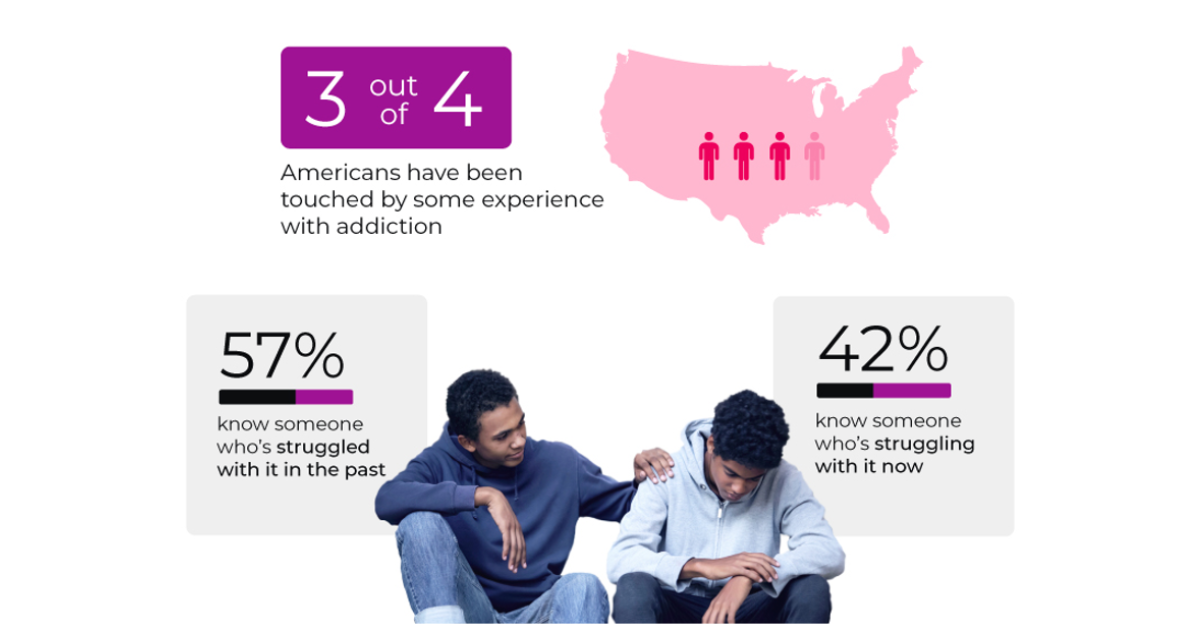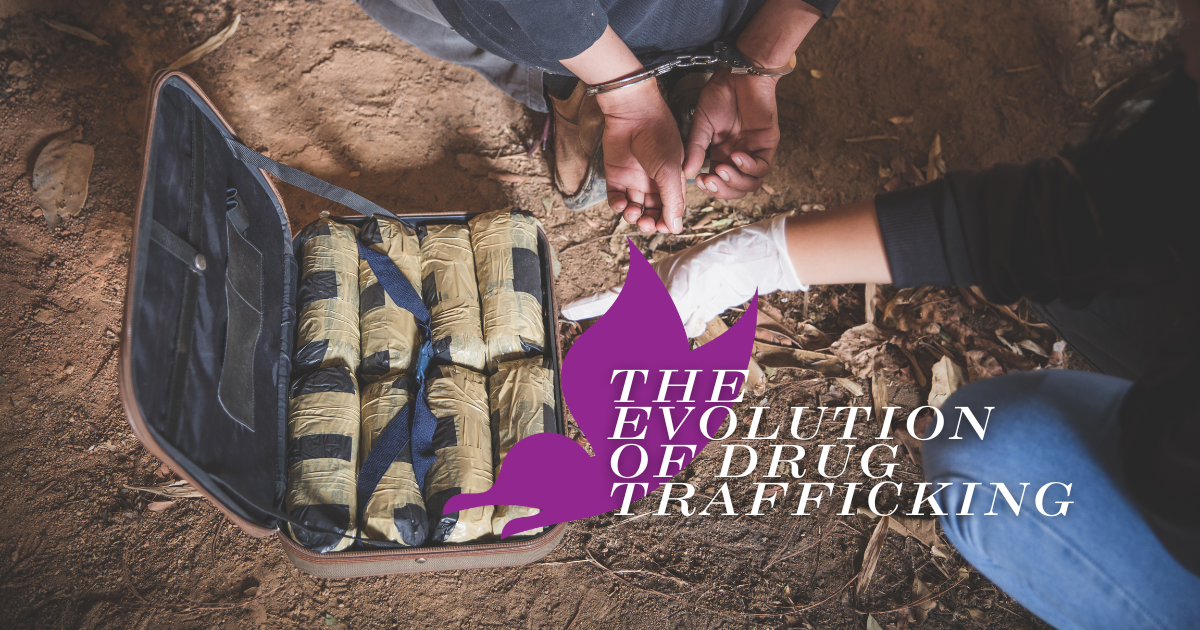Stigma of Addiction May be Changing, According to New Survey
Shame, guilt and despair often keep those experiencing a drug or alcohol addiction from getting the help they need. These feelings are fueled by unfounded beliefs that contribute to the stigma of addiction, which lead many people to believe substance use disorder is a behavioral issue or moral failing. They are beliefs that Americans have clung to for decades. However, a new survey conducted by OnePoll on behalf of Landmark Recovery suggests that attitudes towards substance use disorders have significantly changed in the last five years, including how addictions are treated and the far reaching impacts they have.
Nearly 70% of the 2,000 survey respondents said they are more sympathetic now to those suffering from addiction than they were in 2017. The survey also shows that three out of four U.S. adults believe that stigmatizing people who experience an addiction does more harm than good. Millennials (ages 26-41) reported the highest increase of sympathy towards people with substance use disorders, while baby boomers (ages 57-75) reported far less of a shift.
Still, a majority of respondents selected terms like “in need of help,” “serious,” and “heartbreaking,” to describe substance use disorders over words like “selfish” or “dirty.” They also described people who seek addiction treatment as “strong” and “courageous.” The survey shows that eight out of 10 people now believe addiction treatment can help someone recover.

Why Attitudes About Addiction Have Shifted
“One reason why attitudes towards addiction may be changing is that unfortunately we’re seeing more stories of addiction,” said Michelle Dubey, chief clinical officer at Landmark Recovery, a drug and alcohol addiction treatment provider. “More people are able to put a face to addiction. It is no longer just a problem for some people. Hopefully, this has opened people’s eyes to the reality that substance use disorder is a problem that touches many lives, including their own. A lot of people may be more compassionate or open-minded with addiction because they have been exposed to it at an earlier age. We’re seeing a lot more young people get involved with substance use more openly than we have in the past through social media and television.”
Nearly three out of every four American adults have been impacted by a drug or alcohol addiction, the survey shows. Approximately 73% of the respondents said they have a personal connection to substance use disorder. Most people (56%) said they know a family member or friend who has experienced addiction, while 46% admitted they’ve felt dependent on certain substances and 28% called themselves survivors of addiction. Four out of 10 Americans know someone who’s struggling with substance use disorder today.
Despite more realistic and sympathetic views of addiction that have emerged in recent years, the survey found that 50% of Americans still believe drug and alcohol addiction is a choice rather than a disease. This goes against decades of research, which show that continued use of substances changes the chemistry of the brain. Both the American Medical Association and the American Society of Addiction Medicine define addiction as a chronic brain disorder, not a behavioral issue, or a lack of willpower.
Substance Use Disorder Impacts the Brain
Drugs and alcohol impact neurotransmitters connected to feelings of pleasure and reward. Repeated substance use causes the need to consume more and more of a drug in order to achieve the desired high or feeling. A person’s ability to experience pleasure from naturally rewarding activities like listening to music, sex or even eating, are reduced and don’t compare to the sense of pleasure drugs or alcohol can create in the brain. Someone with a substance use disorder experiences intense and nearly unmanageable cravings to use drugs or alcohol in order to feel normal. Attempts to stop using substances without professional guidance and support rarely work.
“Stigmatizing addiction puts us all in a box,” Dubey said. “When a person is being stigmatized they might start to believe that about themselves and think, ‘I’m just a junkie with no self-control. Why should I try anymore because that’s what others think about me.’ They might turn that belief into themselves.
“In addiction treatment we provide them with good, behavioral health care, helping them challenge stigma and overcome an irrational belief system. We teach them how to test the reality of their thinking and push the bad thoughts out and replace them with more positive, reality-based ideas.”
Other takeaways from the survey:
- 47% feel addiction is a “serious problem” in their community
- 8 out of 10 people said addiction is more common today than it was 10 years ago
- 45% know someone who died as a result of an addiction
- 49% chose to cut ties with someone for reasons related to substance use disorder
- 6 out of 10 said decriminalizing drugs has improved circumstances for people in need of help
- 47% said they know someone who has been treated for substance use disorder
- 3 out of 10 said the biggest barrier to addiction treatment is cost
Learn more about the stigma of addiction.
Analyze The Survey Results
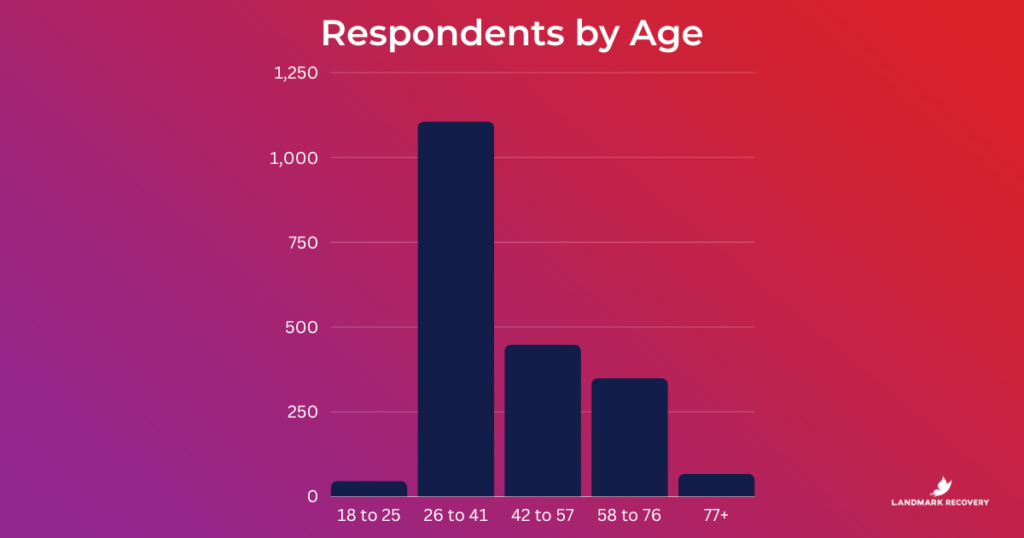
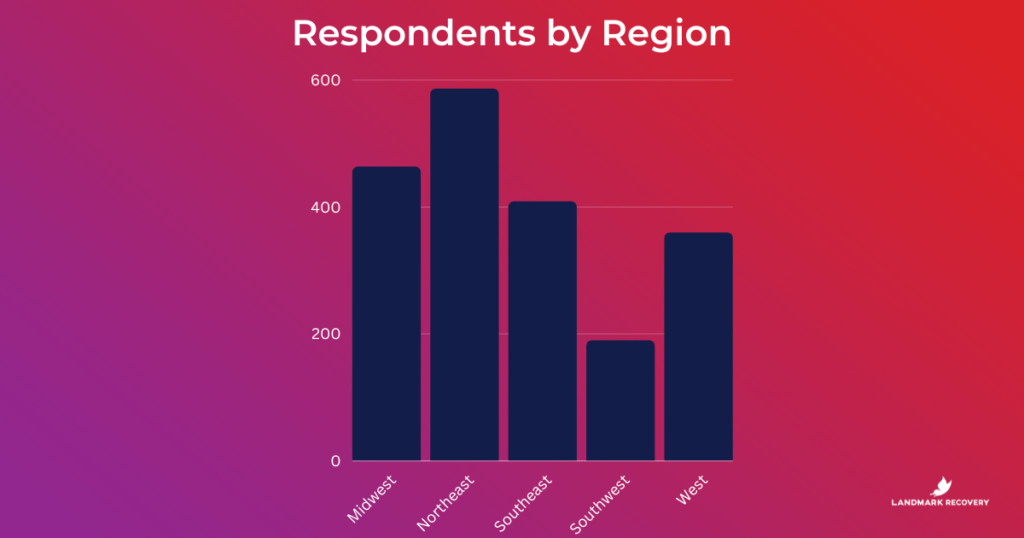
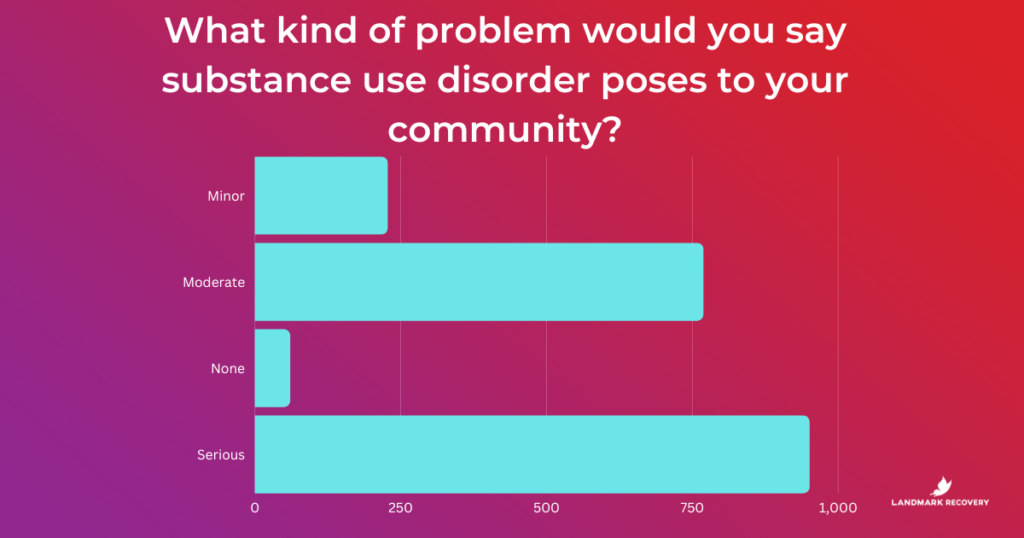
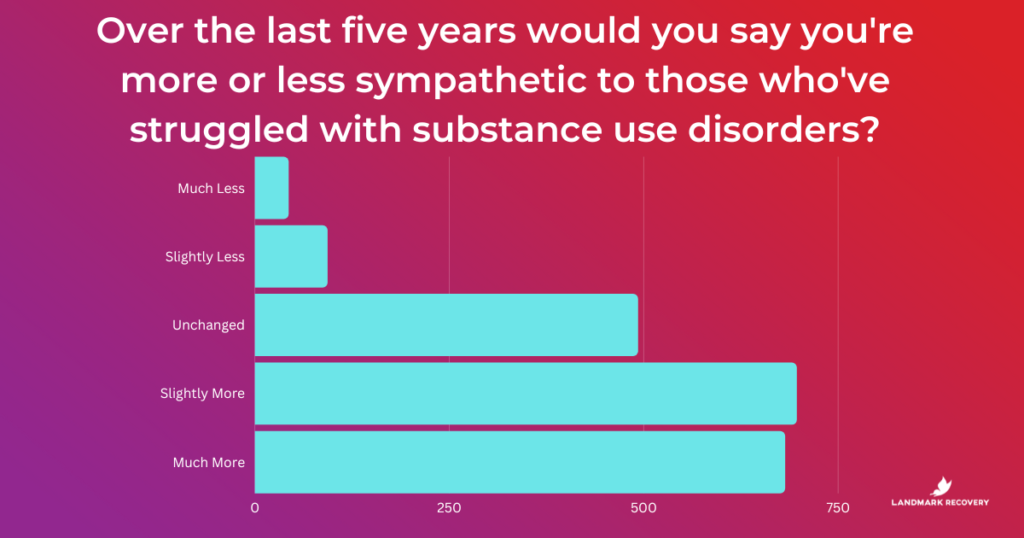
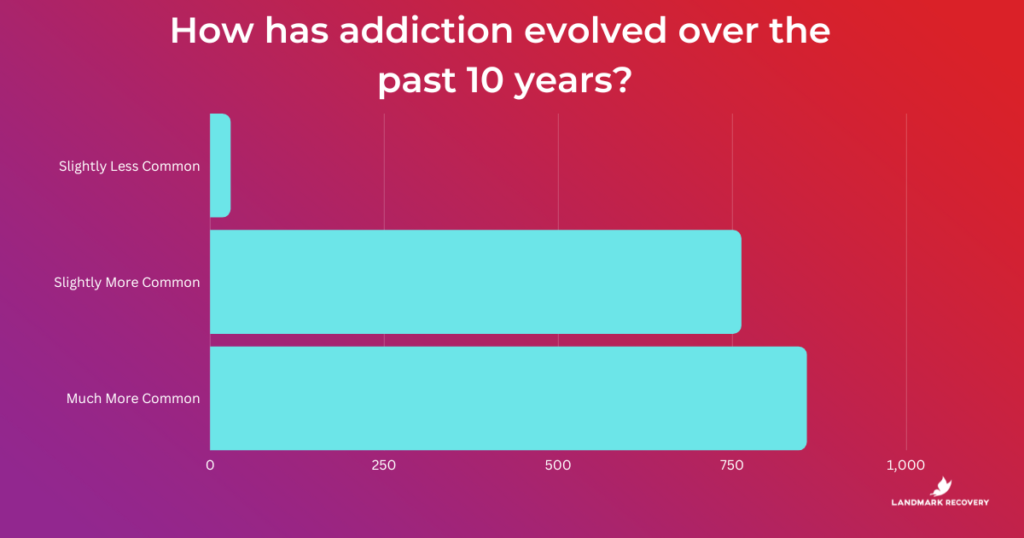
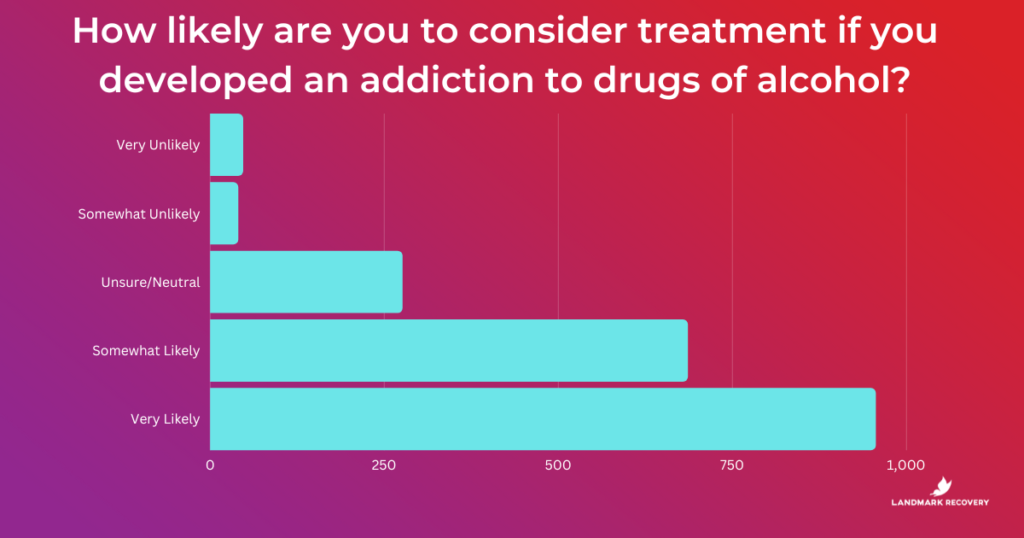

Choose Recovery Over Addiction
We're here 24/7 to help you get the care you need to live life on your terms, without drugs or alcohol. Talk to our recovery specialists today and learn about our integrated treatment programs.

